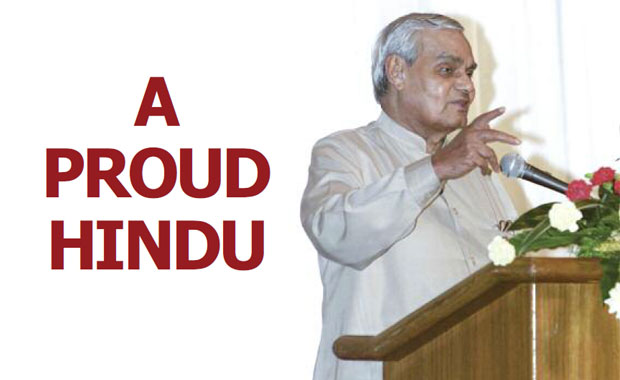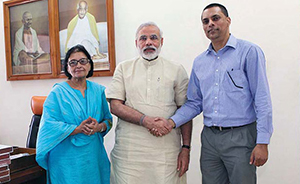A Proud Hindu
As Atal Bihari Vajpayee turned 90 on December 25, he remains one of the finest practitioners of India’s enlightened pluralism as embedded in its ancient civilization rather than an obligation as mandated by the constitution of a young nation-state
Vajpayee, now a shadow of his former self, has straddled public life before and after India’s independence since 1942. He is the last of the generation of leaders whose worldview is avowedly Indian and therefore universal.
For someone who as a Class 10 student wrote this about himself, “Hindu body and mind, Hindu life, every vein carries my Hindu identity (Hindu Tan Man, Hindu Jeevan, Rag Rag Hindu Mera Parichay)”, it is not as if Vajpayee has ever been unambiguous about what informs his sense of identity. However, what has set him apart from the rest of the political crowd within his own Bharatiya Janata Party (BJP) is his innate sense of moderation and decency. He has been known to attribute that strength to his Hindu grounding.
In a speech soon after he lost the parliamentary election to Madhavrao Scindia in 1984 in Gwalior, Vajpayee referred to that poem and said, “People say that the Vajpayee who wrote that is not the same as the Vajpayee who does politics. There is no truth in it. I am Hindu. How can I forget that? No one should forget that. However, my Hindutva is not constricted, it is not narrow.”
Vajpayee also firmly subscribes to the idea that India is a Hindu nation but a secular state, a distinction between “rashtra” and “rajya” which, he said, Vinayak Damodar Savarkar, one of the most controversial pioneers of the Hindu movement, made. “Buniyadi taur par Bharat ek Hindu rashtra hai is sey koi inkar nahi kar sakta aur asweekar nahi kar sakta” (Fundamentally, Bharat is a Hindu nation. No one can deny that or find it unacceptable), he said during that speech to commemorate Savarkar in Pune.











Comments.